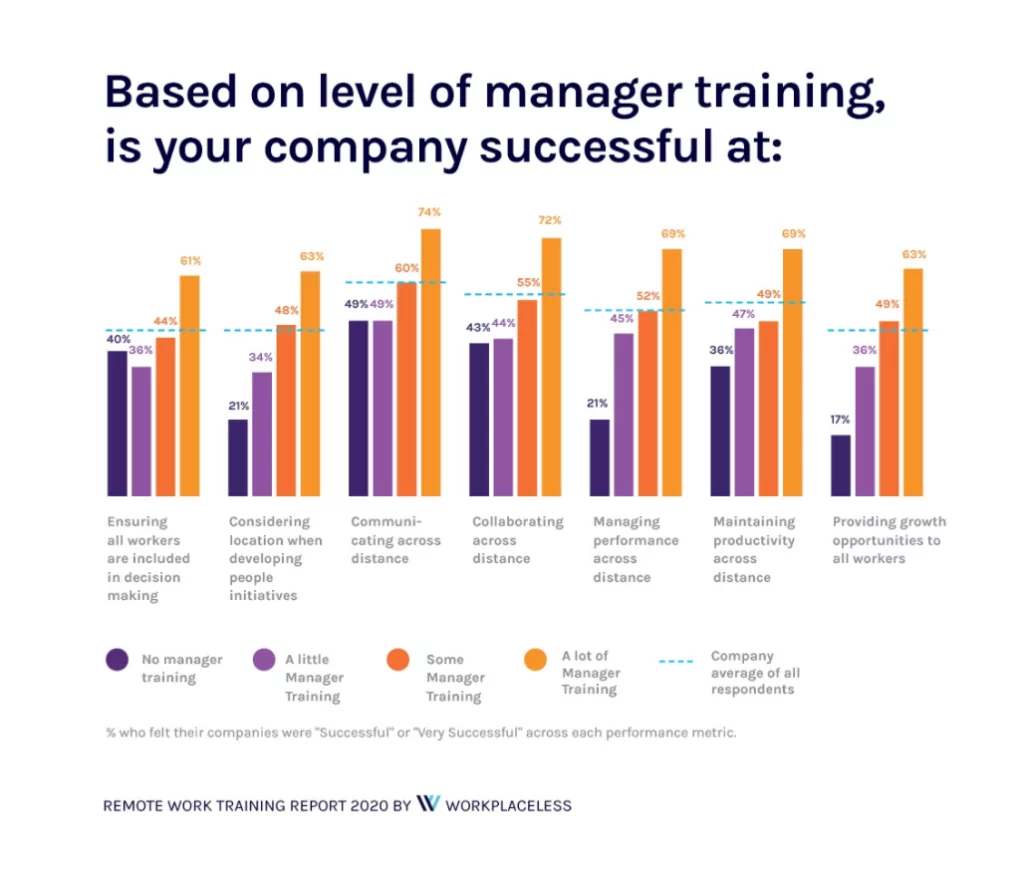The future of remote work is brighter than ever before. There is no doubt that remote work is here to stay. But the question that remains is what does it take to be truly successful, both as an individual remote worker and as a distributed company?
Individuals can thrive in remote work by focusing on developing the skills needed at each stage of their remote career. However, for companies to grow and prosper, the responsibility of learning these skills and developing best practices cannot rest with individuals alone. There needs to be support and alignment across three key pillars: mindset, infrastructure, and capability.
The first annual Workplaceless Remote Work Training Report is an in-depth investigation into the critical role training plays in achieving that alignment. Here are our key findings:
Remote Unpreparedness Leads to Negative Business Outcomes
We evaluated five key drivers for company success, and unpreparedness to work remotely negatively impacted every measurement. The greatest negative impacts were on “Employee Satisfaction,” “Team Productivity,” and “Employee Retention.”

Remote-Specific Training Leads to More Remote Preparedness
Within the report, we consistently saw a correlation between the amount of remote-specific training received and the level of preparedness in remote work. This positive relationship between training and preparedness exists for both individual contributors and managers, however, it is more significant when training managers. Between managers who received “No” training and those that received “A lot” of training there was a 50 point jump in remote preparedness.
These results demonstrate a direct relationship from remote-specific training, to remote preparedness, to remote business outcomes.
Remote Manager Training Leads to Greater Company Success
We wanted to dig deeper into the outcomes of training remote managers. Here we evaluated seven company performance metrics. And again, across each metric, we saw stronger positive results the more training remote leaders received. The biggest improvements were in the areas of “Managing performance across distance,” “Providing growth opportunities for all workers,” and “Considering location when developing people initiatives.”

For more insights on how training factors into the success of distributed teams, download the full Remote Work Training Report.






